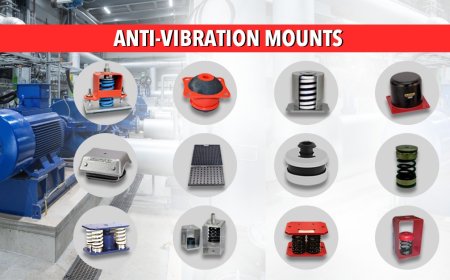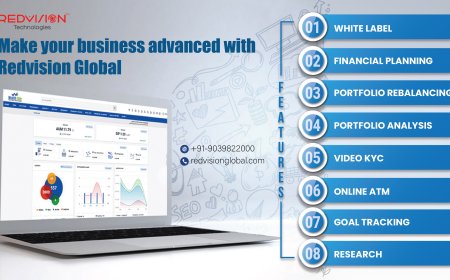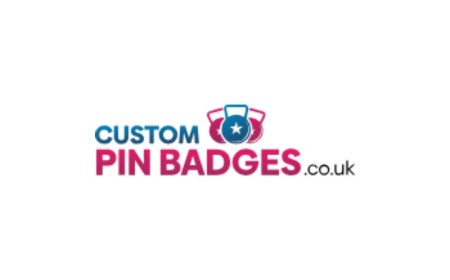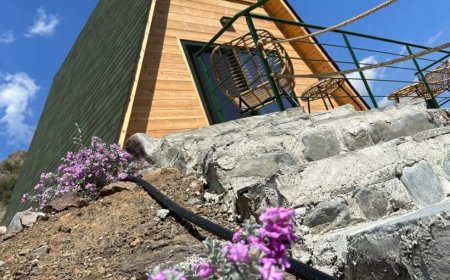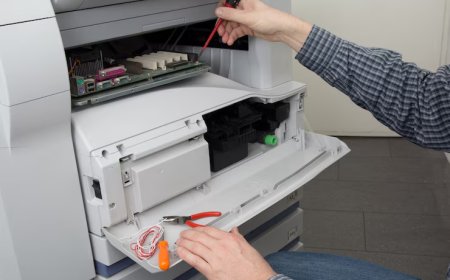How to Earn Trade Certifications in Columbus Washington
How to Earn Trade Certifications in Columbus, Washington Earning trade certifications in Columbus, Washington, is a strategic pathway to career advancement, higher wages, and long-term job security in skilled trades. Whether you're a high school graduate exploring vocational options, a career changer seeking new opportunities, or a seasoned worker looking to formalize your expertise, trade certifi
How to Earn Trade Certifications in Columbus, Washington
Earning trade certifications in Columbus, Washington, is a strategic pathway to career advancement, higher wages, and long-term job security in skilled trades. Whether you're a high school graduate exploring vocational options, a career changer seeking new opportunities, or a seasoned worker looking to formalize your expertise, trade certifications open doors to industries that are consistently in demand across the Pacific Northwest. Unlike traditional four-year degrees, trade certifications offer focused, hands-on training that aligns directly with employer needs—making them one of the most efficient routes to stable, well-paying employment.
Columbus, Washington, while a small community, is part of a broader regional economy that includes construction, manufacturing, agriculture, utilities, and transportation—all sectors that rely heavily on certified tradespeople. Local employers prioritize certified workers because certifications validate competency, ensure compliance with safety standards, and often meet state and federal regulatory requirements. In this guide, you’ll learn exactly how to earn trade certifications in Columbus and the surrounding areas, including the steps to take, the best practices to follow, the tools and resources available, real-world success stories, and answers to common questions.
Step-by-Step Guide
Earning a trade certification is not a single event—it’s a process that requires planning, preparation, and persistence. Below is a detailed, actionable step-by-step guide to help you navigate the journey from beginner to certified tradesperson in Columbus, Washington.
Step 1: Identify Your Trade Interest
The first step is determining which trade aligns with your skills, interests, and long-term goals. Popular trade certifications in the Columbus area include:
- Electrical Worker (Residential/Commercial)
- Plumbing Technician
- HVAC (Heating, Ventilation, and Air Conditioning) Specialist
- Welding (MIG, TIG, Stick)
- Construction Carpentry
- Heavy Equipment Operation
- Lineworker (Power Line Technician)
- Commercial Driver’s License (CDL) with Hazmat Endorsement
- Landscaping and Irrigation Installation
- Boiler Operation and Maintenance
Research each trade by reviewing job postings on local platforms like Indeed, LinkedIn, and the Washington State Employment Security Department. Look for recurring requirements—certifications, licenses, or specific equipment experience. Talk to professionals in the field through networking events or job shadowing opportunities. Your interest should be matched with market demand to ensure long-term employability.
Step 2: Verify Certification Requirements
Not all certifications are created equal. Some are nationally recognized, while others are state-specific or employer-driven. In Washington, many trade certifications are regulated by the Washington State Department of Labor & Industries (L&I). Visit the L&I website to confirm which certifications are mandatory for your chosen trade. For example:
- Electricians must complete an apprenticeship and pass a state licensing exam to become a Journeyman Electrician.
- Plumbers must register with L&I and complete 8,000 hours of supervised work before taking the journeyman exam.
- Welders may pursue American Welding Society (AWS) certification, which is widely accepted across the state.
Some certifications, such as OSHA 10 or OSHA 30, are not trade-specific but are required by most employers as safety prerequisites. Make a checklist of all required credentials for your target trade, including any continuing education hours.
Step 3: Enroll in an Approved Training Program
Washington State recognizes training through several channels: public community colleges, private vocational schools, union apprenticeships, and employer-sponsored programs. In the Columbus region, the closest accredited institutions include:
- Columbia Basin College (Pasco, WA) – Offers HVAC, Electrical, and Welding programs
- Yakima Valley College (Yakima, WA) – Provides CDL, Carpentry, and Plumbing courses
- Washington State Department of Labor & Industries – Lists approved apprenticeship sponsors
- Local unions such as IBEW (International Brotherhood of Electrical Workers) and UA (United Association of Plumbers and Pipefitters)
When choosing a program, ensure it is accredited by a nationally recognized body such as the Accrediting Commission of Career Schools and Colleges (ACCSC) or approved by L&I. Ask if the program includes:
- Hands-on lab work
- Industry-recognized credentials upon completion
- Internship or job placement assistance
- Eligibility for state licensing exams
Many programs offer evening or weekend classes for working adults. Some even provide financial aid, scholarships, or payment plans.
Step 4: Complete Required Hours of On-the-Job Training
Most certified trades in Washington require a combination of classroom instruction and supervised work experience. For example:
- Electrician apprenticeships: 8,000 hours over 4–5 years
- Plumbing apprenticeships: 8,000 hours with 576 hours of classroom instruction
- Welding certifications: 1,000–2,000 hours of practice before AWS testing
Apprenticeships are often the most effective route because they combine paid work with structured learning. You’ll be employed by a licensed contractor or company while learning under a master tradesperson. Many apprenticeships are open to applicants as young as 17, with no prior experience required.
To find an apprenticeship, contact local unions, trade associations, or visit the Washington State Apprenticeship and Training Council website. You can also reach out directly to construction firms, HVAC companies, and electrical contractors in Columbus and nearby towns like Kennewick, Richland, and Pasco.
Step 5: Prepare for and Pass the Certification Exam
Once you’ve completed your training and accumulated the required hours, you’ll need to pass a certification or licensing exam. These exams typically include:
- Written knowledge test (code requirements, safety, theory)
- Practical skills demonstration (e.g., wiring a panel, welding a joint, installing a fixture)
Study materials are often provided by your training program, but you should also purchase the latest edition of the National Electrical Code (NEC), Uniform Plumbing Code (UPC), or relevant standards. Practice exams are available online through providers like SkillCat, PSI, and the Washington State L&I portal.
On exam day, arrive early, bring proper identification, and follow all testing center protocols. If you don’t pass the first time, most states allow retakes after a waiting period—use the feedback to target weak areas before retesting.
Step 6: Apply for Your Certification or License
After passing your exam, submit your application to the appropriate state agency. For most trades, this is the Washington State Department of Labor & Industries. Required documents typically include:
- Proof of completed training hours
- Exam score report
- Application fee (varies by trade; $50–$200)
- Background check authorization
Processing times vary from 2–8 weeks. Once approved, you’ll receive your official certification card or license. Keep a digital and physical copy, and renew it before expiration—most licenses require renewal every 2–3 years with continuing education credits.
Step 7: Maintain Your Certification and Build Your Career
Certification is not a one-time achievement—it’s the beginning of a professional journey. To stay current:
- Complete required continuing education (CE) hours
- Stay updated on changes to building codes and safety regulations
- Pursue advanced certifications (e.g., Master Electrician, Certified Welding Inspector)
- Join professional organizations like the Associated Builders and Contractors (ABC) or the National Association of Home Builders (NAHB)
- Network with other tradespeople at local job fairs, trade shows, and workshops
Many certified workers eventually start their own businesses. If that’s your goal, you’ll need to obtain a business license from the Washington Secretary of State and carry liability insurance.
Best Practices
Earning a trade certification is a serious commitment. Following best practices will increase your chances of success and help you stand out in a competitive job market.
Start with a Clear Plan
Don’t jump into training without knowing your end goal. Map out your timeline: How many hours per week can you dedicate? What’s your budget? When do you want to be certified? A written plan keeps you accountable and focused.
Build a Strong Work Ethic
Employers value reliability, punctuality, and attention to detail more than raw talent. Show up early, ask questions, take notes, and follow instructions carefully. Your attitude during apprenticeship can determine whether you’re offered full-time work.
Invest in Quality Tools
While some employers provide tools, having your own basic set (tape measure, multimeter, wrench set, safety glasses) signals professionalism. Keep tools clean, organized, and in good repair. A well-maintained tool kit reflects pride in your work.
Master Safety Protocols
Safety isn’t optional—it’s mandatory. Always wear PPE (personal protective equipment), follow lockout/tagout procedures, and report hazards immediately. OSHA 10 and OSHA 30 certifications are not just requirements; they’re life-saving knowledge.
Document Everything
Keep a log of all training hours, job sites, supervisors, and completed projects. This documentation is critical when applying for licensure and later when proving experience for advanced certifications or business ownership.
Seek Mentorship
Find a seasoned tradesperson willing to guide you. A mentor can offer advice on navigating the industry, avoiding common mistakes, and identifying job opportunities. Many master tradespeople take pride in mentoring the next generation.
Stay Updated on Industry Trends
Green energy, smart home technology, and energy-efficient building codes are transforming the trades. Learn about solar panel installation, smart thermostats, and EV charging stations. These emerging skills make you more valuable to employers and clients.
Network Locally
Attend meetings of the Columbia Basin Chamber of Commerce, local home builder associations, or trade union halls. Relationships built in person often lead to job referrals and contract work.
Tools and Resources
Success in earning trade certifications requires the right tools and access to reliable information. Below is a curated list of essential resources for aspiring tradespeople in Columbus, Washington.
State and Government Resources
- Washington State Department of Labor & Industries (L&I) – lni.wa.gov – Official source for licensing requirements, exam schedules, and apprenticeship listings.
- Washington State Apprenticeship and Training Council – lni.wa.gov/trades/apprenticeship – Directory of registered apprenticeship programs across the state.
- Washington State Employment Security Department – esd.wa.gov – Labor market data, wage reports, and job outlooks for skilled trades.
- WA Skills Center – Offers free career counseling and training referrals for residents.
Training and Education Providers
- Columbia Basin College – Offers certificate programs in Electrical, HVAC, and Welding with financial aid options.
- Yakima Valley College – Known for its CDL, Carpentry, and Plumbing programs with industry partnerships.
- Tri-Cities Technical Education Center – Provides short-term, high-demand trade courses in the Tri-Cities region.
- IBEW Local 48 – Offers electrical apprenticeships with competitive wages and benefits.
- UA Local 290 – Plumbing, pipefitting, and HVAC apprenticeships with union support.
Exam Preparation Tools
- Code Books – NEC 2023, UPC 2024, and IRC 2021 (available through NFPA, ICC, and Amazon)
- SkillCat App – Free mobile app with practice quizzes for electrical and plumbing exams
- PSI Exams – Official testing provider for Washington state licensing exams
- YouTube Channels – “The Electrician’s Apprentice,” “Welding Tips and Tricks,” “HVAC School”
Financial Aid and Support Programs
- WA State Workforce Training Fund – Grants for low-income individuals and displaced workers
- Pell Grants – Available for eligible students enrolled in accredited trade programs
- Trade Schools Scholarships – Organizations like the National Association of Women in Construction (NAWIC) offer scholarships for women entering trades
- Veteran Benefits – GI Bill® can cover tuition and living expenses for qualifying veterans
Professional Organizations
- Associated Builders and Contractors (ABC) – Pacific Northwest Chapter – Networking, training, and advocacy
- National Center for Construction Education and Research (NCCER) – Standardized curriculum and certification
- American Welding Society (AWS) – Offers certification exams and continuing education
- Home Builders Association of the Tri-Cities – Local events and job boards
Job Search Platforms
- Indeed.com – Filter by “certification required” and “Columbus, WA”
- LinkedIn – Follow local contractors and join Washington trade groups
- TradeJobs.com – Specialized job board for skilled trades
- Local Classifieds – Check the Tri-City Herald and Columbia Basin Herald for small business postings
Real Examples
Real stories illustrate what’s possible when individuals follow the path to trade certification. Here are three examples from the Columbus and Tri-Cities region.
Example 1: Maria Rodriguez – From Retail Worker to Licensed Electrician
Maria worked in a retail store in Pasco for seven years but felt unfulfilled and underpaid. At age 29, she enrolled in Columbia Basin College’s Electrical Technology Certificate Program. With financial aid from the Workforce Training Fund, she completed 600 hours of classroom instruction in 10 months. She then secured an apprenticeship with a local electrical contractor, working 40 hours per week while completing her required 8,000 hours. After passing the Washington State Journeyman Electrician exam, she earned her license in 2023. Today, Maria earns $32/hour and plans to start her own electrical service company within three years.
Example 2: James Thompson – Welding Certification After Military Service
James served in the U.S. Army as a combat engineer and was honorably discharged in 2021. He used his GI Bill® benefits to enroll in the Welding Technology program at Yakima Valley College. He completed the 18-month program, earned his AWS D1.1 Structural Welding Certification, and was hired by a local fabrication shop in Kennewick. Within a year, he earned his AWS Certified Welding Inspector credential and now trains new apprentices. James credits his military discipline and the structured training program for his rapid career growth.
Example 3: David Nguyen – Landscaping to Certified Irrigation Specialist
David started as a lawn care helper in Columbus, working for a small landscaping company. He noticed that many clients needed irrigation system repairs and installations but few technicians were certified. He took an online course through the Irrigation Association and completed a hands-on workshop at the Tri-Cities Technical Education Center. He earned his Certified Irrigation Technician (CIT) credential and began offering irrigation services on the side. Within two years, he launched his own business, “Columbia Basin Irrigation Solutions,” and now employs three certified technicians. His business has grown by 40% annually since certification.
These examples show that trade certifications are accessible regardless of background, age, or prior experience. What matters most is commitment, consistency, and a willingness to learn.
FAQs
Do I need a high school diploma to get a trade certification in Columbus, Washington?
No, a high school diploma is not always required. Some programs accept a GED or equivalent. However, most apprenticeships and accredited training schools prefer applicants with a high school diploma or GED because the coursework involves reading technical manuals and performing calculations.
How much does it cost to get a trade certification in Washington?
Costs vary widely. Community college programs range from $2,000 to $8,000. Apprenticeships often have little to no tuition—you earn while you learn. Exam fees are typically $100–$300, and licensing fees range from $50 to $200. Tools and PPE may cost $500–$1,500 upfront. Financial aid, scholarships, and employer reimbursement can significantly reduce out-of-pocket expenses.
How long does it take to earn a trade certification?
It depends on the trade. Short-term certifications (like OSHA 10 or forklift operation) can be completed in a few days. Programs like HVAC or Electrical may take 6–12 months of training plus 4–5 years of apprenticeship. Most journeyman-level certifications require 2–5 years total.
Are trade certifications recognized outside of Washington?
Many are. National certifications like AWS, NCCER, and OSHA are recognized across the U.S. State-specific licenses (like electrician or plumbing) may require reciprocity agreements or additional exams if you move to another state. Always check with the licensing board of your target state before relocating.
Can I earn a trade certification while working full-time?
Yes. Many programs offer evening, weekend, or online classes. Apprenticeships are designed for working adults—you’ll be employed while training. Some employers even pay for your education as part of their retention strategy.
What’s the job outlook for certified trades in Columbus, Washington?
Excellent. The Washington State Employment Security Department projects a 15–20% growth in skilled trade jobs through 2030. Aging infrastructure, housing shortages, and renewable energy projects are driving demand for electricians, plumbers, welders, and HVAC technicians. Columbus and the Tri-Cities region are experiencing rapid population growth, increasing the need for skilled labor.
Can women earn trade certifications in Columbus?
Absolutely. Women are increasingly entering the trades, and many organizations actively support their participation. Groups like NAWIC and SkillsUSA offer mentorship, scholarships, and networking for women in construction and technical fields. Gender does not determine ability—commitment and skill do.
What if I fail my certification exam?
Failing an exam is not the end. Most states allow you to retake the test after a 30-day waiting period. Use the feedback report to identify weak areas, review materials, and consider taking a prep course. Many students pass on their second attempt.
Do I need a background check to get certified?
Yes, for many licensed trades. Washington L&I requires a criminal history check for electricians, plumbers, and contractors. Certain convictions may delay or disqualify you, but not all. Contact L&I directly if you have concerns about your record.
Can I get certified in multiple trades?
Yes. Many professionals hold multiple certifications—for example, an electrician who also becomes certified in solar panel installation, or a plumber who adds HVAC training. Diversifying your skills increases your earning potential and job flexibility.
Conclusion
Earning trade certifications in Columbus, Washington, is one of the most practical, rewarding, and financially sensible career decisions you can make. Unlike traditional college paths that leave many burdened with debt and uncertain job prospects, trade certifications offer direct entry into high-demand, well-compensated professions with clear advancement pathways. The journey requires dedication—completing training, logging hours, studying for exams, and maintaining credentials—but the return on investment is immediate and lasting.
From electricians installing solar systems in new homes to welders building bridges that connect communities, certified tradespeople are the backbone of Washington’s infrastructure and economy. The state actively encourages workforce development through funding, apprenticeships, and partnerships with educational institutions. You don’t need to be a genius—you need to be consistent, reliable, and willing to learn.
Start by identifying your trade. Enroll in an approved program. Seek out an apprenticeship. Study relentlessly. Pass your exam. Get licensed. And never stop improving. The tools you carry, the skills you master, and the certifications you earn become your professional legacy—ones that no algorithm, automation, or economic downturn can take away.
Whether you’re standing in front of a panel of wires, welding steel under a summer sun, or installing a new water line in a quiet neighborhood, you’re not just doing a job—you’re building the future. And in Columbus, Washington, that future is waiting for you.











